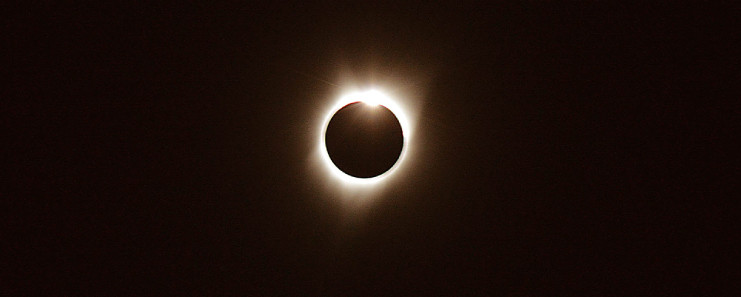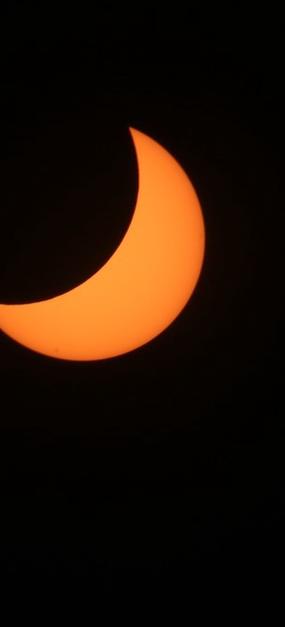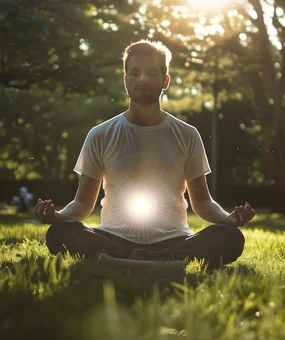A solar eclipse means many myths and precautions for an expecting mother. Are these timeless truths or have they modified to pressurize women? Let’s find out.
As the year is coming to a close, we’re ending it with a big bang: a solar eclipse (grahan). Some of you may be indifferent to it while others follow a more traditional route.
You’ve probably heard this story:
A little boy was playing in his grandmother’s kitchen. Looking up, he observed her carefully cutting a tiny corner from each side of her freshly baked bread. She kept them away and went about her work.
“Grandma,” he quipped, “Tell me about what you just did.”
“I’m not sure,” she replied slowly, jogging her memory. “I think it’s because my mother and grandmother have done the same.”
We’ve watched our grandmothers, mothers, aunts, cousins and friends following a certain set of dos and don’ts during eclipses. And if you’re expecting, then you can certainly expect the rules to get longer.
Does it really matter if you follow them or not? That’s a personal choice. Whatever you find resonating with your life. However, it’s good to understand them before dismissing something as archaic or regressive. You might just be in for a surprise!
Solar Eclipse: Common Practices Around the World
The ancients around the world were aware of the celestial movements in the cosmos. They understand that movements among the planets, sun and moon affected all life. Firmly rooted in the belief that we are all interconnected, the ancients knew a small shift in a planetary position or an eclipse will affect people’s minds and bodies.
Little wonder then that each country around the world developed their own set of guidelines. For instance, pregnant women in ancient Mexico were asked to wear red undergarments during a solar eclipse. Sharp objects were kept away from pregnant women in India.
“Everything is interconnected. When a celestial phenomenon happens, it impacts the body also. For example, the way you feel early in the morning is different from how you feel in the afternoon or evening. Evening goes with romantic music and melodies, morning goes with wake-up calls.”
– Gurudev Sri Sri Ravi Shankar
All our ancestors cannot be wrong. Perhaps unknowingly and intuitively, they stumbled upon knowledge which gave birth to certain guidelines. Today, science is validating many practices. At the same time, can an expecting mother avoid travel to work during an eclipse? That’s a tough one.
Debunking Some Myths Around the Solar Eclipse
Myth 1: Eclipses are Bad.
A charming belief in Italy insists that flowers planted during a solar eclipse are brighter and more colourful than flowers planted at any other time of the year.
Eclipses are known to spur inner shifts towards peace, well-being, and joy. Eclipses are not bad phases or carriers of evil omens. It’s a phenomenon in the universe we inhabit. And like every movement, it can cause ripple effects. Period.
Myth 2: Eclipses are Dangerous for Expectant Mothers.
Firstly, there is no power in the universe that would want anything bad for you. And especially if you’re bringing a new life into this world. There is no proof to say that eclipses are dangerous for the mother or fetus.
Myth 3: Some people say pregnant women should not use a knife before, during or after a grahan. If done, the child will be born with a cleft organ.
Let’s not add fear and worry to an expectant mother.
The truth: It’s best to avoid sharp objects and certain metals incase of accidents or reactions.
Let’s remember, there was no electricity in ancient times. Our ancestors probably experienced darkness during certain eclipses and hence wanted to protect people, women in particular. They also wanted women to rest from the regular chores like cooking.

Myth 4: Expectant mothers should not wear hair pins or safety pins.
Rest and relax. Don’t worry about it. There is no truth to this.
Isn’t our cultural heritage fascinating? Equally intriguing is our tradition of healing and health. Thousands of years ago, our ancient sages unlocked techniques and wisdom to maintain holistic health.
Myth 5: A lot of people cite the damage done to the offspring of animals to support their claim of eclipses affecting pregnancy.
There’s no evidence of this. Also, the universe is equally compassionate to the offspring of an animal as it is to your future child. The effects could be related to the increased toxins in the air.
Myth 6: Gazing at the sun during a solar eclipse can cause deformities and miscarriages.
Gazing at the sun during a solar eclipse is harmful to any individual, not just a pregnant lady. The sun’s UV rays can burn the retina in the eye, leading to permanent damage. There are people who wear eclipse glasses, special projectors or solar filters to catch the eclipse. However, it’s best for pregnant women to avoid all this.
And, evidence does not point towards deformities or miscarriages.
Myth 7: A solar eclipse induces labor.
Let’s relax on this one. We don’t have any information to suggest this.
“The sun is the sustainer of life. When the rays of the sun are blocked during its regular ‘operating’ hours, there will be some disturbances. It’s also a time when toxins are thrown up in the air. Since pregnant women are more sensitive to changes in the atmosphere and toxins in general, they were protected.”
– Ashutosh Chawla, Head -Jyotish and Vastu, Vaidic Dharma Sansthan, The Art of Living
Precautions: A Few Teeny Things to Help You
There are some practices that are beneficial during the hours of an eclipse.
1. Meditate: You can switch on any guided meditation from The Art of Living app. The Ram meditation is especially beneficial. Practice your Sahaj Samadhi mantra. You could also choose to close your eyes and observe your breath.
2. Chant: If you practice chanting, do that. It could be ‘Om Namah Shivaya’, the Gayatri mantra, the Shanti mantra or any prayer you’ve learned and that resonates with you.
3. Food: You’re pregnant and your body needs constant nourishment. So eat light. Just a small caveat: The rays emitted during an eclipse get absorbed in everything. Especially food. If possible, try to cook fresh food after an eclipse. If you’re unable to do so, don’t worry.
The popular practice is not to eat during an eclipse. Ayurveda gives an exception to pregnant women, children, the sick and the elderly.
Gurudev explains it thus: “The reason we say, don’t eat during and before the time of eclipse is because the food increases metabolism in the body. Increased metabolism doesn’t let the mind be in a calm state. If you have food, you would simply fall asleep. We advise this to soothe the system and not excite it during the celestial phenomenon.”
5. Travel: It’s best to avoid travelling at this time if possible. If you’re in a large open house, draw the curtains and meditate. However, if it’s absolutely mandatory to travel, avoid gazing at the sun.
6. Bathe: If possible bathe after an eclipse. It simply helps to wash away the toxins that have come up during the time. If it’s not possible to have a bath, then wash your face, hands and feet.
7. Use the power of tulsi (basil): Keep a tulsi leaf in your mouth during the eclipse period. You don’t need to chew on it, just keeping it in your mouth will work wonders. The secret? Tulsi leaves have anti-radiation properties. A single tulsi leaf has the power to minimize or negate any negative effect of the eclipse. We bet you didn’t know this.
8. After-eclipse (grahan) practices: Usually the effects of a solar eclipse linger for a few months. So, for the next three months, do these daily practices:
- Meditation: like the Ram meditation or full moon meditation
- Chanting / Japas (repetitive chanting of mantras)
- Cleansing practices like light pranayamas
And be happy. Only the best can happen to you! And even the Universe will conspire to give you the best experience possible!
Know about Next Eclipse Dates & Timings:
Solar Eclipse details
Date: 8th April 2024
Start Time: 11:22 PM
End Time: 12:41 AM (9th April)
Partial Lunar Eclipse details
Date: 28th October 2023
Start Time: 11:32 PM
Date: 29th October 2023
End Time: 03:55 AM
Lunar Eclipse details
Date: 25th March 2024
Start Time: 10:23 AM
End Time: 03:02 PM
*Note: The above details are with respect to Indian Standard Time
Based on inputs by Ashutosh Chawla, Head -Jyotish and Vastu, Vaidic Dharma Sansthan, The Art of Living
Interested to know more about solar eclipses and star signs? Click on this link to know what this solar eclipse means for you!















